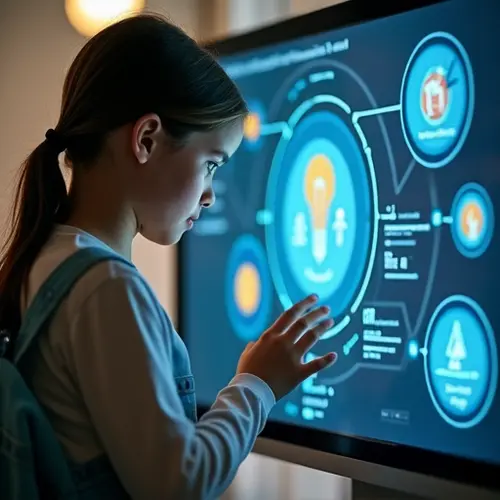
The Future of Childhood Education
Imagine an AI that grows with your child from their first breath. Education experts are developing AI-powered learning companions that adapt to a child's development in real-time. These systems track cognitive milestones, learning preferences, and emotional responses from infancy through adolescence.
How AI Learning Companions Work
Using sensors and natural language processing, these AI systems analyze a child's interactions. For infants, they might adjust lullabies based on responsiveness. For toddlers, they create personalized storybooks featuring the child's favorite animals. By school age, the AI becomes an adaptive tutor that explains math concepts differently if a child struggles.
Unlike traditional apps, these systems build long-term developmental profiles. Arizona State University's 2025 AI Challenge is piloting similar technology in higher education, showing how these systems could scale from cradle to college.
Benefits and Concerns
Proponents highlight early intervention capabilities. "AI can detect learning differences years before traditional methods," explains Dr. Elena Rodriguez, child development researcher. Potential benefits include:
- Personalized learning pathways
- Continuous skill assessment
- Emotional intelligence development
- Multilingual acquisition from infancy
But concerns remain about data privacy and screen time. The U.S. Department of Education recently emphasized responsible AI use in early education programs, urging strict privacy safeguards.
The Road Ahead
Prototypes exist, but widespread implementation faces hurdles. Key challenges include ensuring equitable access and preventing algorithmic bias. As Stanford researcher Dr. Kenji Tanaka notes: "The technology is promising, but human oversight remains essential. AI should augment parenting, not replace it."
With global investments in educational AI projected to reach $12B by 2028, these birth-to-adulthood learning companions could redefine education. The question isn't whether they're possible, but how we'll ethically implement them.

 Nederlands
Nederlands English
English Français
Français Deutsch
Deutsch Español
Español Português
Português


